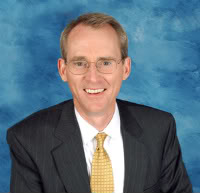Report from the American Council on Renewable Energy Meetings in Washington DC

Here’s an excerpt from a keynote address, delivered by self-described “conservative Republican” US representative Bob Inglis from South Carolina:
The definition of “sustainability” is “profitability.”
He’s got a good point there; things don’t happen if they’re not profitable.
It would be great if we could achieve a level playing field. Even if we can’t force the oil and coal industries to pay the costs of cleaning up after themselves, we need to stop handing them subsidies that make it impossible for clean energy to compete against them.
Amen. You must have been reading my diatribes here at 2GreenEnergy.
Conservative Republicans now seem to think that they can drive SUVs, use ever-depleting resources without regard to the health and safety of anyone else now or in the future, and land someone else’s kid on the sands of the Middle East, to fight and die to make sure this God-given right never goes away. I don’t call that “conservatism.” I call that “dereliction of duty.”
Wow, Bob. Right on. In what sense of the term are you a “conservative Republican,” exactly?


In a political environment of late so tragically prone to extremism, I applaud these flashes of wisdom from the address by Bob Inglis.
However, I must point out that sustainability is not defined solely by profitability – although it’s very synergistic when the two dovetail. One of the purposes of a government of We the People is to do things for ourselves and progeny that the private sector could or would never do. The interstate highway system is one example, there are many others.
Should we allow profitable alone to define sustainable we should quickly find ourselves misled and mistaken. Sustainability involves using no more than replenishment, and preventing the destruction of the ecological services upon which society – however removed it appears from nature – will always depend. It also involves ensuring a thorough and holistic accounting, in the absence of which dirty fuels now appear highly profitable.
Bob’s comments on a level playing field and dereliction of duty are quite laudible – a few more tons of this kind of talk, and a nice helping of genuine action to back it up, and I might just have to consider voting republican again.
Yes, I suppose we could say that profitability (in our world) is a necessary, though not a sufficient condition to define sustainability.
And yes, I was quite taken by his words on deriliction of duty. The place burst into spontaneous applause when he said that, btw.
Craig:
I live in Bob Inglis’ SC congressional district and happen to live just a few miles from his home and drive by his house most days on my way to work.
Bob was a good congress-critter (and I voted for him), but I’m not at all sure his ideas on GW had much to do with Trey Gowdy beating him in the primary in 2010.
Thanks, Scott. I can’t determine the cause of Inglis’ defeat for sure, but this is a concept I’ve read a few times.
A little off the topic but interesting still…
Unexpectedly Good News, Regarding Energy Trends:
By: Ralph Cavanagh, University of Idaho, faculty
Each summer for almost 60 years, the University of Idaho has brought “Emerging Electricity Industry Leaders” to our campus for training in the, “Electric Utility Executive Course.” This year, I researched; “Leading Energy Indicators” to track trends over the past 10 to 40 years and many were surprised to learn that:
1. Although the U.S. economy has almost tripled in size over the past forty years, oil use is up by only about one percent. Since 2007, we’ve cut oil consumption by over 12 percent; 2007 will almost certainly rank as the all-time peak.
2. Looking ahead, higher fuel economy standards already adopted for cars and light trucks may save the equivalent of more than two million barrels of oil a day by 2025 — that’s more than one-tenth of total U.S. oil use today. (Electric and hybrid technology vehicle use is contributing.)
3. Since 2000, U.S. electricity use has grown more slowly than the US population for the first sustained period since the industry was launched a century ago. Also our use of coal to generate electricity has declined by about 10% of our coal-fueled generation capacity. The principal replacement sources have been natural gas and wind power. Wind power has grown in production during the past 10 years, by 2,000%.
4. When you adjust for economic growth and inflation, the United States has cut its energy needs by more than 50% since 1973 and the trend shows no signs of slowing. We would have needed to increase contributions from all other fuels by about 400%. Since 1973, the total growth in U.S. energy needs has been less than 30 percent, this is progress.
From the July 17, 2012 Rocky Mountain Institute, News Blog
I would say all that information sounds great, but, as you mention, did you find data about how many manufacturing has been outsourced during that time? The economy grew, but not by manufacturing solid products like cars, pots and pans or every other product we can think of. It´s good to know the economy is growing, but manufacturing isn´t; that is not a good sign, a country that does not manufacture is loosing a basic root for innovation; the US should be in manufacturing wind turbines, hydro turbines, solar panels and every other industry also, that´s what a leader does.
Steven, I agree with your comment, we have lost a large number of manufacturing work to countries where middle management types don’t live as well as out unemployed on food stamps and aid for dependent children. I did like the oprimistic comments offered however and that is why I forwarded it here from the indicated source. Ralph Cavanagh, University of Idaho, faculty directly, From the July 17, 2012 Rocky Mountain Institute, News Blog